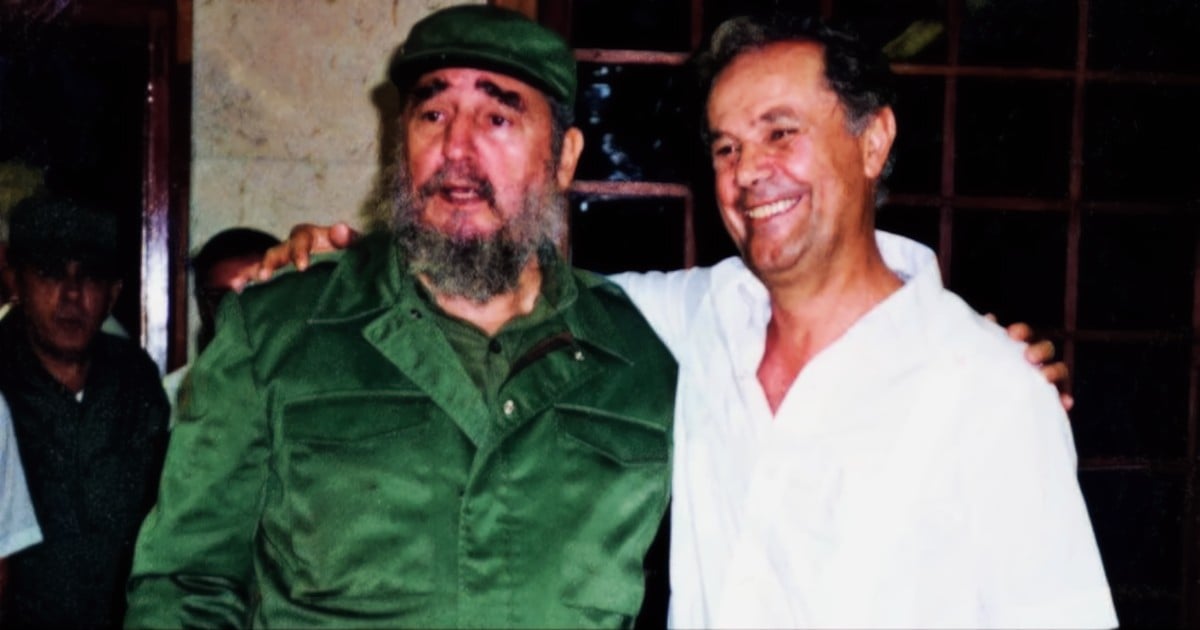
The Cuban leader, Miguel Díaz-Canel, expressed his condolences for the passing of Gabriel Escarrer Juliá, the founder of Meliá Hotels International, acknowledging his role as a "global leader in the tourism sector" and emphasizing that he "invested in Cuba."
"My condolences to the family, friends, and the team at @MeliaHotelsInt, all of whom are in shock over the passing of Gabriel Escarrer, a global leader in the tourism sector. He believed in #Cuba and leaves us with invaluable lessons to carry on. Farewell, my friend," said the first secretary of the Communist Party of Cuba.
However, Meliá's presence in the island and its connection to the Cuban regime warrant a deeper analysis of the implications of that "bet."
Escarrer, who passed away at the age of 89, transformed Meliá into one of the largest hotel chains in the world, leaving a legacy of nearly seven decades.
His relationship with Cuba began in the 1990s, during the "Special Period," when dictator Fidel Castro turned to tourism as a lifeline for the Cuban economy, which had been devastated by the collapse of the Soviet bloc.
Meliá has established itself as the strategic partner of the Cuban regime, operating under a model that granted the Cuban state ownership of the facilities while the Spanish chain managed the hotels. This model has remained in place to this day, under the leadership of Gabriel Escarrer, the founder's son.
A Controversial Relationship: Meliá and Cuban Tourism
The relationship between Meliá and the Cuban regime has been controversial. While the regime prioritizes the construction of hotels and tourist complexes, key sectors such as agriculture, health, and basic infrastructure are left behind.
The regime's focus on tourism, often hailed as an economic solution, has also been criticized for perpetuating an economic model that primarily benefits government elites and their foreign partners.
The business model in Cuba raises serious questions about labor rights and the inequalities in access to employment in the tourism sector.
Cuban workers hired at hotels operated by Meliá and other foreign chains receive their salaries in Cuban pesos, while the rates charged for the rooms are in foreign currencies, creating a significant economic gap. This system has been condemned by human rights organizations as a form of covert labor exploitation.
"Betting on Cuba": Who benefits from this wager?
Tourism has been an economic pillar for the regime, generating foreign exchange revenues that largely do not directly benefit the Cuban population.
The remittances from tourists and hotel revenues end up in the coffers of entities such as the Business Administration Group S.A. (GAESA), which is controlled by the Armed Forces of the regime.
Meliá, by collaborating with these entities, has been highlighted for its role in a system that supports the repressive apparatus of the regime.
Despite the economic crisis in Cuba, the regime continues to invest millions of dollars in hotel infrastructure while hospitals lack basic medications and Cubans face a landscape of food scarcity.
These decisions have exacerbated social discontent, highlighting the distorted priorities of an administration that prioritizes attracting foreign tourists over the urgent needs of its own population.
Business legacy versus social reality
Gabriel Escarrer Juliá will be remembered as a visionary who contributed to the development of global tourism. However, in the case of Cuba, his legacy is intertwined with a business model that, far from empowering the local population, has reinforced a political system that restricts rights and freedoms.
Díaz-Canel described Escarrer's contributions as "valuable lessons to follow," but the question is: Follow for whom? While the government elites and their international partners reap the benefits of tourism, the Cuban population faces rising economic inequality and a lack of opportunities that contradict the official narrative.
In this context, it is crucial to maintain a critical approach to the relationships between the Cuban regime and its international partners, ensuring that the narrative around tourism does not obscure the inequalities and violations that underlie this key sector of the Cuban economy.
Filed under: